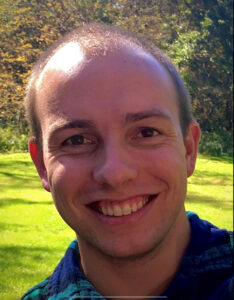By Patrick Schmadeke
Evangelization in the World Today

This moment feels like a new chapter in American history. People have many feelings about the new administration. I’ve seen a range of emotions: anger, confidence, confusion, fear, frustration, glibness, helplessness, joy, jubilation, numbness, self-righteousness, surprise. Few people have neutral opinions about what has transpired in the last few weeks. I would suggest that in the stew of this historical moment, there are two dominant ingredients. These are not new, freshly added, ingredients. They have been here for a long time.
In high school history class, we read the early 16th century work, “The Prince,” by Niccolo Machiavelli. A work of political advice dedicated to Lorenzo de Medici, Duke of Urbino, it is almost more of a pamphlet than a book, really. I reencountered it a few years later in 2012 in conversation with Patricia, a hotel owner in Florence, Italy — the home city of the opulently wealthy and politically powerful Medici family. Patricia was paging through “The Prince” at the lobby desk and I inquired about her reading it. She shared that she had spent the last few years slowly working her way through the book. This surprised me, since it is a short work, but her reply struck me: “Well, I have to discover if I really believe this stuff.” Her reply left me with a decade-plus-long pause in my soul: do I really believe this stuff?
The ethos of “The Prince” is the first of our two ingredients in our present moment. Perhaps the most famous lesson from “The Prince” is this: the ends justify the means. In this philosophy, if one’s end-goal is laudable or virtuous, then one may use any means necessary to achieve that goal; it becomes “ethical” to do otherwise unethical things. Another lesson from “The Prince” is this: it is better to be feared than loved. Leveraging fear mitigates public resistance, clearing the way to achieving one’s ends. The overall ethos of “The Prince,” as a style of political-social maneuvering, came to be coined as “Machiavellian.”
Machiavellianism is not new to our culture. “The Prince” was written 400 years ago; its mentalities are as old as sin and it underpins decision-making in popular stories in characters ranging from “Batman” to Shakespeare to “The Lion King.” Interestingly, both “good” and “bad” characters exhibit Machiavellian tendencies, which suggests that our culture still hasn’t figured out what genuine ethical deliberation looks like.
While these patterns are common to our culture, they are antithetical to Christ. I admire Patricia’s willingness to own the fact that some of Machiavelli’s ideas have staying power within our culture’s psyche and those ideas may have invaded us personally. She had the humility to spend years examining her life and habits through Machiavelli’s lens. In this way, she was modeling an examined life — the kind of life worth living.
A second prevailing ingredient in our world today is an ambition for a total zero-sum power. “Zero-sum” because this view interprets power in a binary fashion: one either has it or not and it is not to be shared with the powerless. “Total” because once you have it you can do whatever you want with it. “Ambition” because one is willing to sacrifice one’s own character to achieve one’s goals. This ambition and retention of power is reminiscent of Gollum from “The Lord of the Rings” — notice the distorting potency. Such power wielding is present in just about every Disney movie and it is present in stories where opponents become the faceless vanquished rather than images of God to reconcile with (notice how the “good guys” and “bad guys” view each other the same way — as worthy of destruction). Such stories may be popular, but they are ethically twisted. Ambition for a total zero-sum power is antithetical to Christ. Jesus tells a different story of power: from The Good Samaritan to The Prodigal Son to the Garden of Gethsemane — Golgotha is a prerequisite for resurrection.
In chapter two of “Fratelli Tutti” (#56-#86), Pope Francis offers a meditation on The Good Samaritan that is worth reflecting on, as Patricia did with “The Prince” — patiently, openly, honestly, as an examination of conscience. I think I’ll commit to this practice and see what comes to the surface. Surely there will be some things I would rather not see and rather not admit. But if Christ is to live within me, there can be no room for Machiavellianism or ambition for total zero-sum power. Honesty begins in the heart, and such honesty is a prerequisite for the evangelical life.
(Patrick Schmadeke is director of evangelization for the Diocese of Davenport.)








